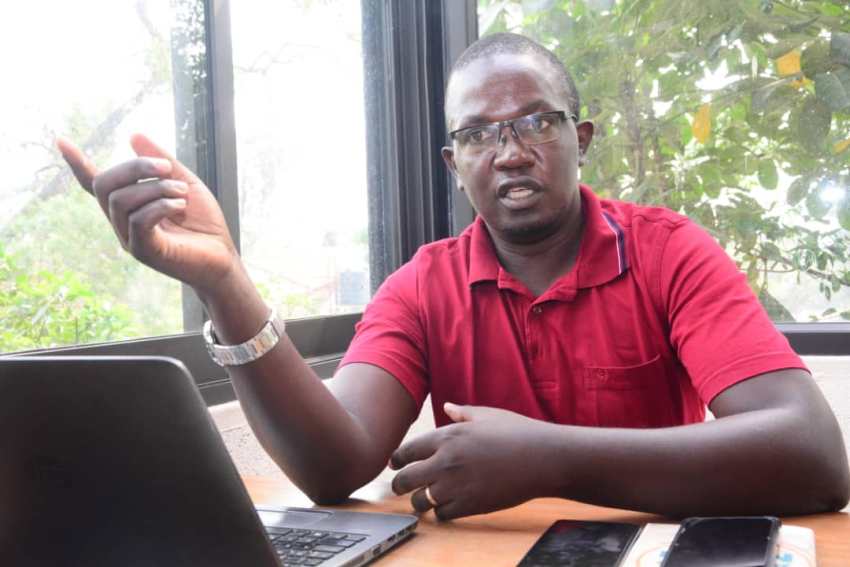NTUNGAMO — In September 2021, an idea was turned into reality in Ntungamo District, Mabunu market was started in the area.
The market that happens on every last Saturday of the month in Rwemihanga Village is the new talk of the town.
Mabunu sits on nine acres of land which was leased for 10 years to carry out a community project, market for the development of the area.
With the desire to go back home and do something to give an opportunity to people to develop themselves, Joshua Tayebwa the dream bearer of the project says they set the ball rolling.
He says like any other village, locals think people from Kampala have money and they want to receive handouts from them, this motivated them to start the market.
“We realised that it is not sustainable to give handouts to people. It is better to show them how to make money. Mabunu is just a marketing gimmick and we used a word that can cause talk ability. When you hear the word, you would want to actually go and find out what is there,” he says.
He says they have so far achieved that objective since just a mere mention of Mabunu market, people want to know what is there.

At first, according to Tayebwa, people who are intellectuals are reluctant to give it attention but for someone who doesn’t understand the meaning it is a normal word and overtime, people have come to normalise it.
Rwemihanga has now shifted from its name to Mabunu. It is an open market where everyone comes and sells what they have. People deal in livestock, agricultural products, fish and general merchandise.
“The market is not just about people coming to buy and sell. Village people rarely have a fun day out, so we create an hour between 5pm and 6pm filled with activities like sack race, games, wrestling, and those old time activities where people for a moment can rewind and laugh.”
According to Tayebwa, the conventional markets are about people going to a place to buy and sell items, but Mabunu has been coined it in a way that people find it fun to go there.
He explains that the market is also unique in a way that people come and feel at home to do what they want. The locals drive the market, they own the project and control it. It is them to organise the market.
Impact
The village has a primary school in the neighbourhood and the enrolment has since skyrocketed since the market was established.
This is because the market provided a platform for households to make money and they are now able to send children to school.
“The surrounding area has also grown. Previously, an acre of land was Shs5million but now it has more than doubled because people have seen opportunities around. It has also changed how people think about villages, no one knew a year ago that this place would be having more than 15000 gathering every Saturday.”
Charges
According to Tayebwa, for the last six months that the market has operated, they have not charged any money from the traders. He says they mobilised the leadership of the district before the bill allowing private people to own markets was passed.
Previously, a private owner had to work with the local government because they were the only mandated people to own markets. “When we approached the district leadership and told them the idea, they gave us a waiver whereby we should not get money from people to hire stalls. This was given to the investor but we said our objective was not to get money out of the place but marketing the place to make it known,” he says.
Currently, the proprietors do not levy any fee for these people to access the market apart from those people who cook and peel fruits from the market, they give a small nominal fee to clean the market.
Challenges
Tayebwa shares that the weekly market in a village setting is not sustainable because traders have a route chart of markets and how they move.
They are always moving on every day which means that Mabunu is happening when no other market is happening on that very day because each has a specific day. It happens once and it happens big.
He shares that when the market began, people he described as enemies of progress spread propaganda telling landowners how they (market proprietors) were going to steal their land.
“I told them that this is their market and if they chase it because they fear for their land to be grabbed, it is their loss. They are fed with a lot of negativity but when we get the chance we talk to them and assure them that is not true.”
He adds: “We do not have any physical permanent structures on the land, when the market is not there, it is your land to graze, and we are not fencing it. With time, they have realised we are not in any way thinking about stealing the land.”
Tayebwa says they also show the landlords the available opportunities for them to exploit and earn from their land which has since been dormant.
“Right now the biggest challenge is accommodation for people who come, if they can get an acre from the land and build cottages or rooms, there are opportunities there. We keep showing them such opportunities they can tap in to develop their land more.”
Future plans
On the side of the market land, Tayebwa says they have family land where they hope to establish more developments. They started with a café which operates all the time.
“The market is growing and we are continuing growing with our support until the foreseeable future. We have so far achieved what we wanted, the talk ability of the place and everyone knowing it. Right now when I organise an event here, people turn up in big numbers,” he says.
Tayebwa explains that the market has opened many opportunities and if he sets up cottages, he is sure people would want to spend nights there.
“In our calculations, we realises that the market is between all tourism centres, if you are going to Ishahsha, Kabaale, Kisoro, Bwindi, you can drive from Kampala, stay at Mabunu and in the morning it is just about 100km to these places. The cottage idea is already in the offing, many opportunities are being worked on.”
Change of law
With the bill allowing private people to establish and own markets having been passed, Tayebwa still investing in the market requires a lot since people who have tried to run markets have conflicted with local government.
He says they can still do public private partnership with the local government and see how they can coexist because private owners cannot operate in a vacuum as much as they can run a market.
Previously, the law was that a private owner develops a market and gives it to local governments to run it then they agree on proceeds when they collect money.
“I think government regulation is important because as much as there is law coming to allow private people to own markets, local governments still have to be there to regulate. Some people can start a market with sinister motives, there has to be guidelines to guide this ownership.”
He adds that it is also in the good interest of the local government that they can now assess the market and see how much they can levy from the private markets.
Do you have a story in your community or an opinion to share with us: Email us at editorial@watchdoguganda.com













